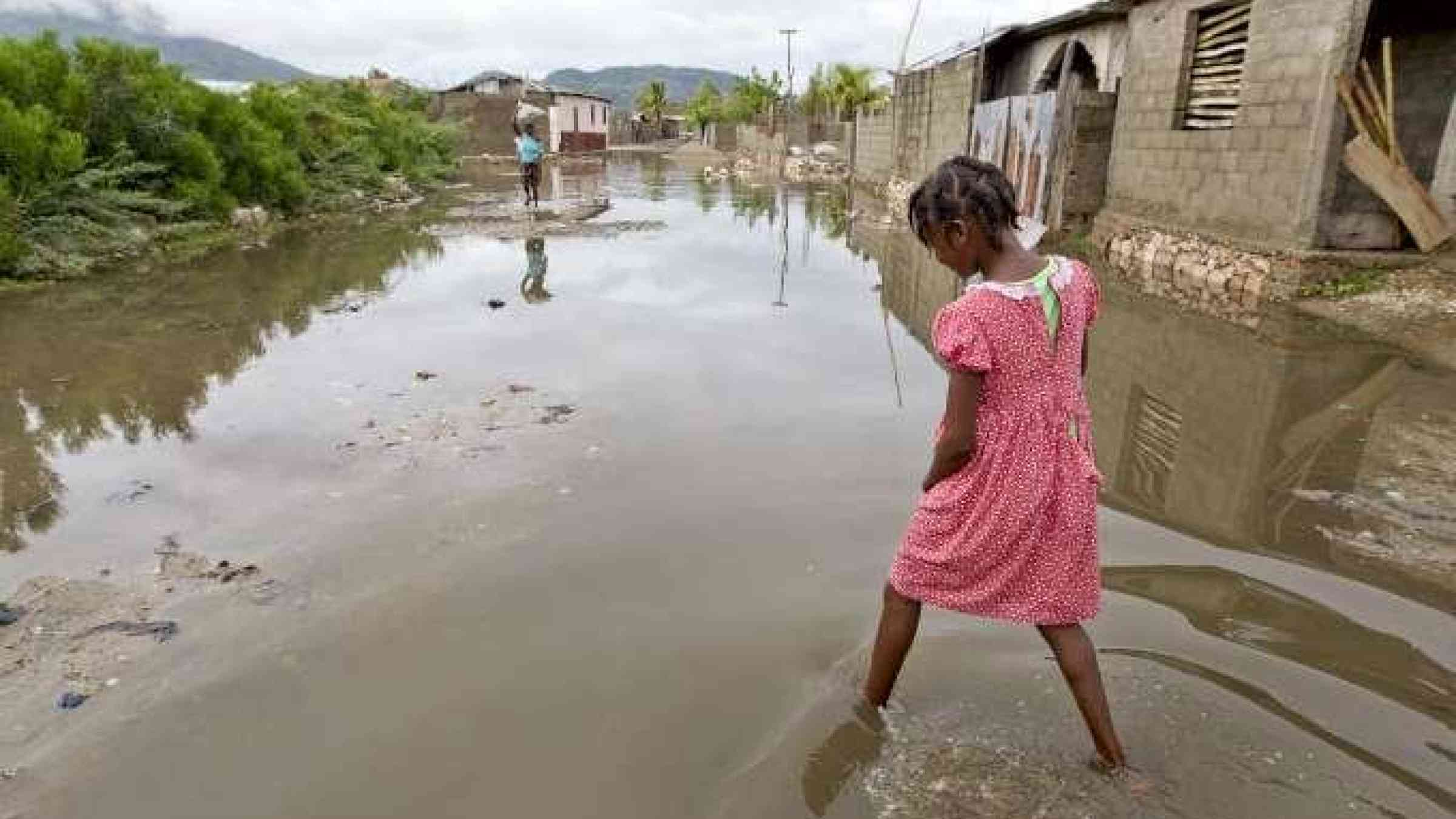Please help us improve PreventionWeb by taking this brief survey. Your input will allow us to better serve the needs of the DRR community.
New fund could be a “game-changer” for humanitarian action

A ground-breaking new humanitarian fund designed to mitigate and even prevent the damage and trauma caused by natural disasters has been launched by the International Federation of Red Cross and Red Crescent Societies (IFRC).
“We think this is a game-changer, not only for the Red Cross and Red Crescent, but for humanitarian action as a whole,” said Pascale Meige, IFRC’s Director of Disaster and Crisis Prevention, Response and Recovery. “Our new forecast-based action fund means that guaranteed money will be available to help communities prepare for a disaster before it strikes.”
The IFRC’s Forecast-based Action fund uses a combination of weather predictions and historical data to fix triggers for the automatic release of money for pre-agreed early action plans. For example, a combination of forecast rainfall combined with the level of a river at a certain point can be used to activate funding for downstream evacuations and the distribution of shelter kits for the people who have been moved to safer ground.
IFRC’s Meige said: “For decades, humanitarians have been calling for a shift to proactive and preventative humanitarian action, but such action has so far been sporadic. For the first time, this fund, and the work we are doing to build country-level plans and agreements, can consistently deliver on this promise – turning promises into action.
“It means that life-saving action can now take place before anyone is in immediate danger, which will save lives and reduce the need for more costly emergency response and recovery efforts.”
This Forecast-based Action fund is embedded within IFRC’s Disaster Relief Emergency Fund (DREF), a 25-30 million Swiss franc annual fund which has been supporting Red Cross and Red Crescent emergency response efforts for more than three decades.
The Fund is being supported by the German Federal Foreign Office, with technical guidance from the German Red Cross, the Red Cross and Red Crescent Climate Centre and other partners.
Peter Felten, Head of the Humanitarian Assistance Division at the German Federal Foreign Office, said: “It’s time to change how we are planning and delivering humanitarian assistance. Waiting for disasters to happen should not be an option any more.
“Forecast-based financing can operationalize the important window of opportunity between early warnings and a potential disaster. The integration of Forecast-based Action within the DREF is a major step to widen the focus from response to anticipatory humanitarian action,” said Mr Felten.
The Forecast-based financing approach – now being rolled out by IFRC at national level – has been piloted at community level since 2014, including in Peru, Togo, Uganda, Bangladesh, Mozambique and Mongolia. In Bangladesh, predicted flooding of the Bramaputra river in 2017 triggered cash grants for people who were able to use this money to support their families during the emergency.
Fifteen National Red Cross and Red Crescent Societies in Africa, Americas and Asia Pacific are currently developing Early Action Protocols for foreseeable and preventable natural disasters and are expected to access the fund in its first two years. However, the facility can be available for all 190 National Societies.
Note to editors: IFRC’s Disaster Relief Emergency Fund (DREF) has been supporting Red Cross and Red Crescent disaster and crisis response activities for more than 33 years. DREF offers start-up funding allocations for large-scale disasters, and grants to fund responses to small- and medium-scale crises that have not attracted international attention or support. Forecast-based Action by the DREF expands DREF’s reach beyond providing resources for disaster and emergency response, to also encompass forecast-based early action for the first time.
Explore further
Please note: Content is displayed as last posted by a PreventionWeb community member or editor. The views expressed therein are not necessarily those of UNDRR, PreventionWeb, or its sponsors. See our terms of use
Is this page useful?
Yes No Report an issue on this pageThank you. If you have 2 minutes, we would benefit from additional feedback (link opens in a new window).